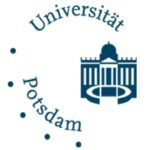 MenschenRechtsMagazin (MRM); Univ. Podstam (Web)
MenschenRechtsMagazin (MRM); Univ. Podstam (Web)
Einreichfrist: –
Anlässlich des 30-jährigen Bestehens des MenschenRechtsZentrums an der Univ. Podstam wird das MenschenRechtsMagazins (MRM) auf Open Journals umgestellt und weiterentwickelt (Web).
Für die kommenden Ausgaben suchen die Herausgeber:innen laufend Beiträge in deutscher und englischer Sprache, die direkt über die neue Website (Web) eingereicht werden können. Seit der aktuellen Ausgabe enthält das MenschenRechtsMagazin diese Textformate:
- Zum einen werden in der Rubrik „Abhandlung“ Aufsätze veröffentlicht. Diese durchlaufen ein „double-blind“ Peer-Review-Verfahren.
- Zum anderen werden in der allgemeinen Rubrik „Beiträge“ Kommentare, Kontroversen, Kurzbeiträge oder anlassbezogene Erörterungen sowie Besprechungen von Entscheidungen und Büchern veröffentlicht. Einreichungen in der Rubrik „Beiträge“ sowie Entscheidungs- und Buchbesprechungen durchlaufen ein Redigat durch die Redaktion des MRM. Maßgebliche Kriterien für die Entscheidung sind die inhaltliche Qualität, die Aktualität und der innovative Charakter des Beitrags.
Weitere Informationen zu den Rubriken und den Autor:innen-Richtlinien sind auf der Website unter dem Punkt „Beitrag einreichen“ zu finden. Beiträge, die im nächsten Heft 29/2024/1 des MRM zum 30jährigen Jubiläum des Zentrums berücksichtigt werden sollen, müssen bis zum 15.12.2023 eingereicht werden.
Bei Fragen stehen die Herausgeber:innen gerne unter redaktion-mrm@uni-potsdam.de zur Verfügung.
Quelle: HSozuKult

 Margareth Lanzinger and Aleksander Panjek; Associazione Internaz. per la Storia delle Alpi
Margareth Lanzinger and Aleksander Panjek; Associazione Internaz. per la Storia delle Alpi  European Association of Social Anthropologists (EASA)
European Association of Social Anthropologists (EASA)  Sarah Werner Boada (Univ. of Warwick) and Patricia Hamilton (Univ. of York); Centre for the Study of Women and Gender (Univ. of Warwick)
Sarah Werner Boada (Univ. of Warwick) and Patricia Hamilton (Univ. of York); Centre for the Study of Women and Gender (Univ. of Warwick)